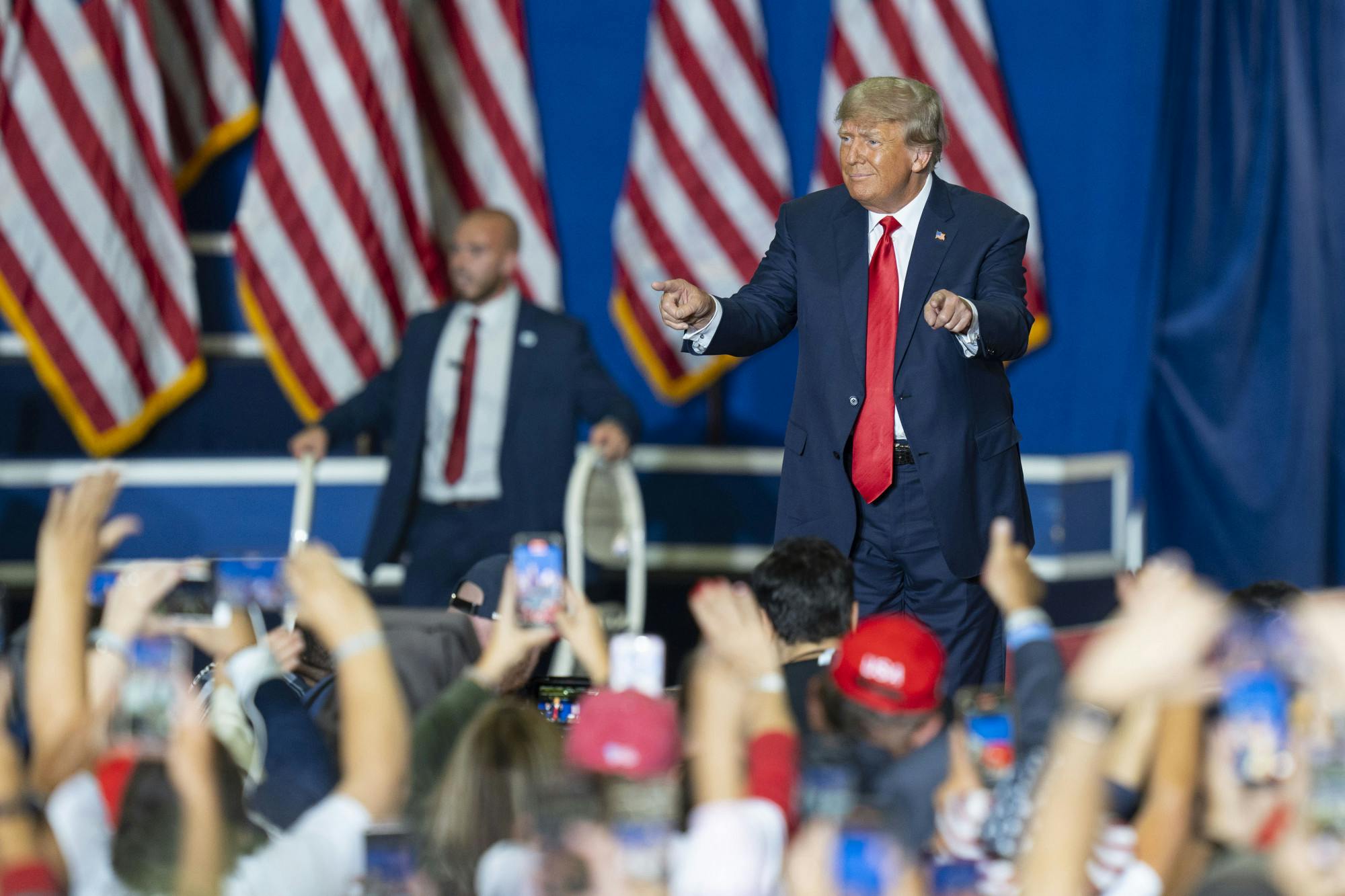Following the highly-publicized indictment and arraignment of former President Donald Trump on April 4, legal experts and ordinary Americans alike have raised questions about what the criminal prosecution of a former president could mean.
For the moment, though, there aren’t a lot of concrete answers, according to two experts.
Jordan Cash, a professor of political theory and constitutional democracy at Michigan State University, said people are correct to marvel at the indictment– it’s completely unprecedented for a former president to be the subject of a criminal trial.
Cash said that not only would a Trump trial have serious legal implications, but it could also have an outsize impact on the 2024 presidential election cycle.
“This is not only a huge event for American legal and political history, but it's going to have very real implications on our electoral process with the way that the likelihood that this will come to trial in the middle of next year's election cycle is pretty high,” Cash said.
The contrast between Trump as an ex-president and Trump as a current candidate will likely complicate how a trial unfolds, and some have expressed concerns that Trump’s political status would keep him from a fair trial.
Brian Kalt, an MSU law professor whose research includes structural constitutional law in relation to the presidency, said in an email to the State News that keeping politics out of the legal process in Trump’s case would be impossible.
“Anything to do with the president is inherently, automatically politicized,” Kalt said. “Prosecuting Trump is a political act. Not prosecuting him would be a political act. Politics greatly complicates this whole process, but that is unavoidable.”
Trump’s presence in American politics has already dominated news coverage of the indictment- from bird’s-eye video of his private plane leaving Florida to turn himself in to authorities in New York to analysis of his facial expressions during the arraignment.
Cash said that a media environment devoted to speculation around the indictment and possible trial might not be helpful or conducive to keeping the process fair.
“Part of what the rule of law requires is to be dispassionate– to look at the facts, to look at what's going on separate from public political debates,” Cash said.
Cash also noted that beliefs surrounding Trump’s criminal activities are largely split along party lines– which he said can be harmful to the integrity of the legal process.
“It appears for a lot of people that your opinion on what you think about this indictment, whether it's holding Trump accountable, making sure that he's not above the law, or whether you think he's been targeted, really comes down to your political opinions, which is not great,” Cash said. “It's not a good thing for a democratic society when these issues of legality, of the rule of law, come down to political partisanship.”
As for how the court might go about keeping political discourse out of a trial, Kalt said that it will be a challenge– and will mostly come down to the jury selected.
“I am guessing that they will use a larger-than-normal pool of potential jurors and be very careful about whom they allow onto the jury,” Kalt said. “But I think it can be done.”
One of the most pervasive questions throughout the indictment and arraignment process has been whether prosecuting Trump, or any former president, would pose a threat to the constitutional powers of the presidency.
Kalt and Cash both said holding former presidents to the standard of the law shouldn’t have a great effect on the ability of future presidents to act while in office.
“It does constrain the presidency, but that's a good and important thing,” Kalt said. “Having criminals in office diminishes the presidency; allowing them to avoid accountability might help the individual, but it does harm, not good, to the institution of the presidency itself.”
Cash said that the constitution’s protections of presidential power are strong enough to withstand the prosecution of a former president.
“The constitutional presidency’s constitutional authority is going to be there, regardless of what happens to Donald Trump,” Cash said.







